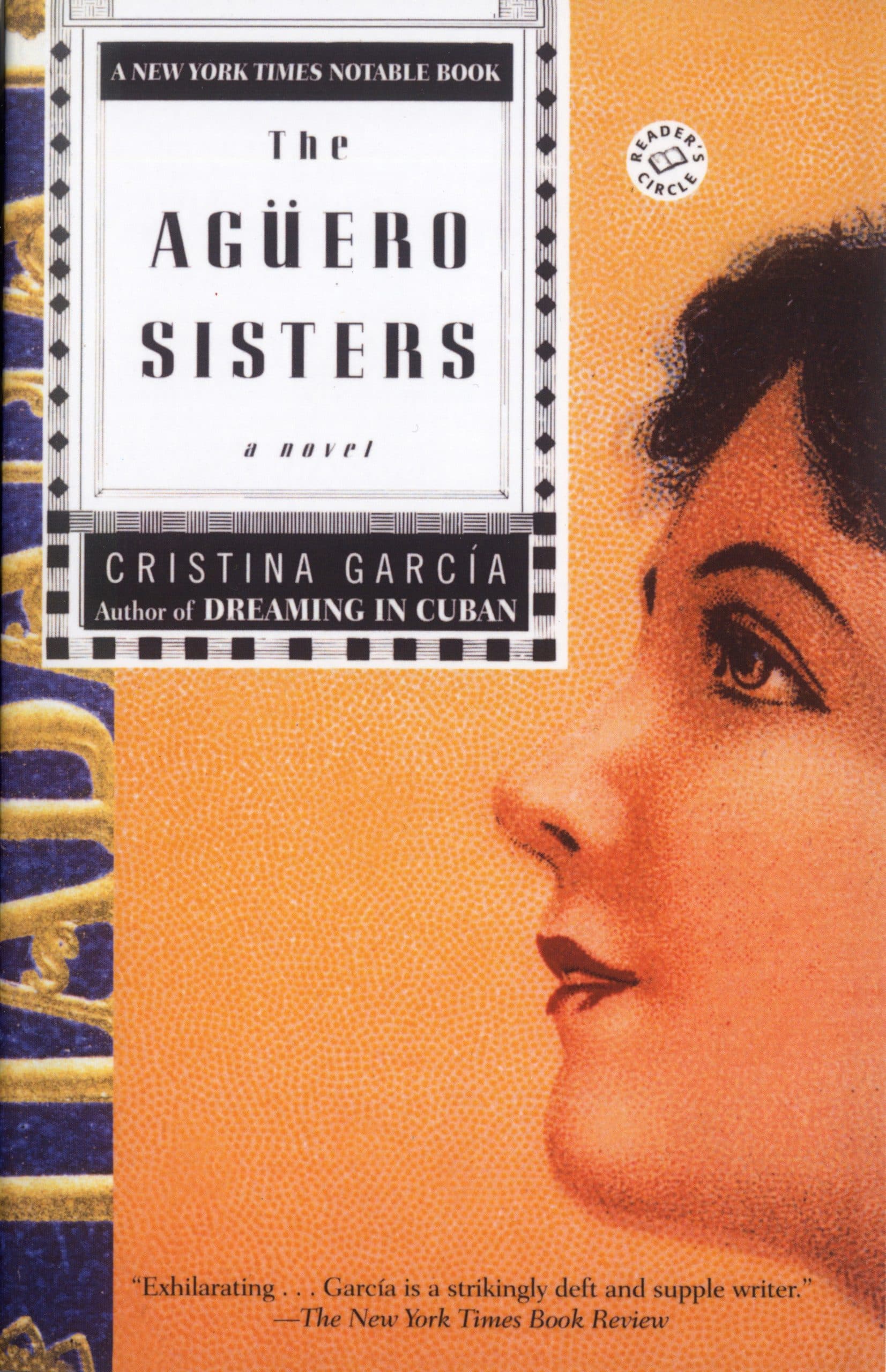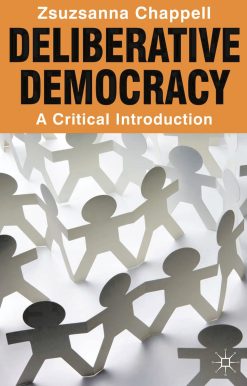The Aguero Sisters: A Novel
13.00 JOD
Please allow 2 – 5 weeks for delivery of this item
Add to Gift RegistryDescription
Reina and Constancia Agüero are Cuban sisters who have been estranged for thirty years. Reina–tall, darkly beautiful, and magnetically sexual–still lives in her homeland. Once a devoted daughter of la revolución, she now basks in the glow of her many admiring suitors, believing only in what she can grasp with her five senses. The pale and very petite Constancia lives in the United States, a beauty expert who sees miracles and portents wherever she looks. After she and her husband retire to Miami, she becomes haunted by the memory of her parents and the unexplained death of her beloved mother so long ago.Told in the stirring voices of their parents, their daughters, and themselves, The Agüero Sisters tells a mesmerizing story about the power of myth to mask, transform, and finally, reveal the truth–as two women move toward an uncertain, long awaited reunion.
Additional information
| Weight | 0.28 kg |
|---|---|
| Dimensions | 1.88 × 13.21 × 20.32 cm |
| PubliCanadation City/Country | USA |
| book-author1 | |
| Format | Paperback |
| Language | |
| Pages | 336 |
| Publisher | |
| Year Published | 1998-4-20 |
| Imprint | |
| ISBN 10 | 0345406516 |
| About The Author | Cristina García was born in Havana and grew up in New York City. Her first novel, Dreaming in Cuban, was nominated for a National Book Award and has been widely translated. Ms. García has been a Guggenheim Fellow, a Hodder Fellow at Princeton University, and the recipient of a Whiting Writers' Award. She lives in Los Angeles with her daughter, Pilar. |
Excerpts from reviews of Cristina García's The Agüero Sisters"An extraordinary new novel does justice to the Cuba of history as well as the Cuba of imagination….Garcia has crafted a beautifully rounded work of art, as warm and wry and sensuous as the island she so clearly loves."–Time"In 1992, Cristina Garcia's Dreaming in Cuban announced the presence of a new star in the American literary firmament…. Garcia's remarkable second novel, The Agüero Sisters, is even better, a deeper, more profound plunge into the mysteries of loyalty, love and identity (national, familial and otherwise)….Cristina Garcia again proves herself a gifted chronicler of exile's promise and peril." –Newsday"Five years after her debut, the former journalist has made good on her early promise with a superb second novel, The Agüero Sisters….With sensual prose and a plot that captures the angst of the Cuban diaspora…Garcia seductively draws us in and refuses to let go."–Newsweek"The conventions of magic realism can either amplify the story and give it resonance or fragment the narrative, draining it of clarity. Garcia's beautifully written second novel…seems to embody both extremes….Her prose is lush and rhythmic, so that the novel has an almost feverish air."–Booklist"A bold and very richly detailed portrait…Fluid, graceful, and extremely rewarding: a work of high seriousness and rich detail."–Kirkus Reviews"Cristina Garcia neatly sidesteps the curse of the much-feted first novel…with the assured The Agüero Sisters, a vibrant tale of a repressed Manhattan cosmetics saleswomen and her sexy, Havana-based sister that blends family, culture, and Garcia's shapely prose into a rich, velvety world one is loath to leave." –Elle"This is no paint-by-numbers allegory. Garcia's characters are three-dimensional and her novel is filled with rich and compelling detail."–San Francisco Chronicle |
|
| Excerpt From Book | Reina Agüero, cleaving to a telephone pole with thighs strengthened by manysuch climbs, is repairing a high-voltage cable outside El Cobre, a copper-miningtown in eastern Cuba, when another storm blows in from the Cayman Trench.Lightning, intricate as a skeleton, shatters the afternoon hum of the SierraMaestra, illuminating the pitted, open-cast mine in the distance. ReinaAgüero wipes one hand, then another, on her regulation jumpsuit as she worksher way down the splintered pole. Her tools clang reassuringly from her belt. Inthe evening, she will climb the coconut tree behind the government hotel andmingle its milk with a little rum. She hopes the concoction will finally permither to sleep. Reina Agüero's insomnia began last summer, on thethirty-seventh anniversary of El Comandante's attack on the Moncada Barracks. Onthe road, traveling for la revolución, it is especially difficult to rest. Thebeds are unpredictable, too soft or infested with fleas, and the days arelengthened by extra work. As a visiting master tradesman, Reina is expected notonly to repair the balkiest electrical equipment in rural Cuba but also toconduct seminars for local electricians and suffer nightly ceremonies in herhonor. Generally, she eats too much fresh pineapple at these events, upsettingher sensitive digestive system. A cluster of electricians applauds as Reinadescends the last few feet of the pole. The ground is saturated with weeks ofunseasonable winter rains. Together she and the men slip and grapple their waydown the hill toward town, a quarter of which is newly lit by her effort. Reinais drenched, and her jumpsuit clings to her still-curvaceous form. She isforty-eight years old, but her body appears many years younger. She ignores themen who linger behind her, mesmerized by the size and swing of her buttocks. Reina is five feet eleven, a good four inches taller than most of the men withwhom she works. Her mouth is large and flawless, with barely discernible corners.The most daring of her colleagues call her Compañera Amazona, a moniker shesecretly relishes. Often, Reina selects the smallest, shyest electrician in agiven town for her special favors, leaving him weak and inconsolable for months.After she departs, black owls are frequently sighted in the ceiba trees. Onthe way back to her hotel, Reina stops in at the Basilica del Cobre. It is Gothicand gloomy and unwelcoming, like so many Catholic churches, but Reina has heardof the impressive curative powers of La Virgen de la Caridad del Cobre, theisland's patron saint. Reina doubts that La Virgen, with all the tragic ailmentslaid at her feet, would bother about a little sleeplessness. But Reina isdesperate. She's tried every soporific–herbal teas and sleeping pills, evensweet-potato plasters for her head–all to no avail. Not even the usualrigorous lovemaking with Pepín Beltrán, her lover of twenty-four years, exhausts her sufficiently into slumber. Last week, during a dusk-to-midnight session,Pepín's face went slack as he dropped dead asleep beneath her pleasure.Afterward, she lay awake in the dark until she could perceive every crack andcrevice in the ornate room. Years ago, it had been her father's study, one ofeight chambers in their commodious old apartment in the Vedado section of Havana.After the revolution, the government rented out the remaining seven rooms to asmany families. Pepín blamed the anarchy of books in the study for Reina'sinsomnia. There are over three thousand volumes on the carved mahogany shelves,stacked on the marble floors, and on six lavishly decrepit armchairs. Many of thebooks were written by her father: A Naturalist's Guide to the Pearl of theAntilles, Reconsidering Bats, The Owls of Oriente, In Search of ErophyllaSezekorni, and his classic, Cuba: Flora and Fauna. A former china closet servesas a display case for his most cherished skins, rare birds and bats long extinct,specimens he himself stuffed with arsenical soap and that looked as fresh andalive as on the day he'd shot them. Pepín begged Reina to clear these relicsfrom their love nest. But Reina refused. Nothing had changed here since herfather's death, forty years before. Reina stands before La Virgen'sshrine in the back of the basilica. Hundreds of candles burn to her in pleadingand thanksgiving. Centuries of offerings are piled into wobbly, glitteringtowers: medallions and military badges from those who survived wars under herprotection; crutches from devotees to whom she gave the strength to walk; ancienttiaras, chalices, Egyptian silks, and wedding rings donated by pilgrims and themiraculously healed. The brown-skinned Virgin presides over these offerings in acream satin gown, a gold lamé cape, and her crown, poised and soothing asher Yoruban name: Oshún. "Bless me, Virgen, for I have sinned," says Reina,kneeling before the saint and awkwardly crossing herself. She barely recalls theprayers she learned as a child, the rituals of the Protestant boarding school sheand her sister were sent to after their mother died. "Well, I haven't sinnedexactly, but I can't sleep, and there must be a reason." A medal from theSpanish-American War catches Reina's eye. A year after Cuba's independence, hergrandfather had come to the island from the hills of Galicia. ReinaldoAgüero became a lector in the second-largest cigar factory in Pinar del Ríoand was greatly admired for his erudition and his rich baritone. Reina's sister,Constancia, used to say proudly that this made them true criollos. "I'm notvery good at this, and you must have a lot on your mind, but I was hoping youcould give me a direction of significance." Reina unsnaps a wrench from her toolbelt and places it next to the medal from the Spanish-American War. "It's notmuch, I know. But maybe when you get a chance you could check in on me, okay?" That night, Reina lies in bed and considers La Virgen's dark methodsof grace. Reina is uncertain of her own beliefs. What she enjoys most is thefreedom from a finality of vision, of a definitive version of life's meaning. Ifshe could perceive nothing in its entirety, then why not celebrate what she couldgrasp with her own senses? Vive de la vida lo sublime. It had been her personalmotto for as long as she could remember. After all, it seemed futile to chasewhat was forever elusive, when reality remained so largely unexplored. Reinapresses the musty hotel pillow over her nose and mouth and begins to count. Oneminute passes, then two. If she succeeds in rendering herself unconscious, Reinathinks, slumber might return. Six minutes pass, then seven. After eight minutes,Reina, fully conscious and supremely irritated with La Virgen de la Caridad delCobre, removes the pillow from her face. After her mother died, Reina'sfather also suffered from insomnia. But his was complete and incurable and drovehim to suicide two years after his wife's death. At least, Reina thinks, mostnights she manages to sleep an hour or two before dawn. Her body sighs with onelong releasing breath, and that is the last thing she remembers before thefaintest light awakens her, puzzled and refreshed. Reina has thought often ofher father's last night in his study, of his double-barreled twelve-gauge shotgunof Irish make, which is still in its velvet-lined case in the closet. His gun wasideal for pulling birds out of any but the highest trees. Although her fathernever considered himself a killer by nature, he'd been an excellent shotnonetheless, as effective on horseback as he was crouched low to the ground. Manyof his specimens had found their way into the collections of the world's mostprestigious museums. The week after his death, a parcel arrived for Reina andher sister, Constancia, at their boarding school. In it was a selection of theirfather's lecture notes, rare stuffed bats and birds, and a dozen of his books,first editions, glossy with color plates. Constancia wanted nothing to do withany of them, but Reina carefully repacked the artifacts and slid them under herbed. Despite her suspicions, she couldn't bear to leave the work of Papá'slifetime for beetles and bookworms to devour. "The quest for truth," IgnacioAgüero had written his daughters, "is far more glorious than the quest forpower." Their father had written this, and then he shot himself in the heart. It is the fourth of December. Reina is up before dawn. In thecountryside, people are already on the roads and the hillsides. This is a comfortto Reina, who hates to wake up feeling alone. As the first light filters andspreads through the darkness, colors seem to her less concentrated, as ifsunlight, not its absence, diluted their strength. During her long wakefulnights, Reina mentally inches her way from the periphery of her bed,reconstructing the world in concentric circles. Everything is at its mostelemental in these circles, pure with the vital sheen of existence. Then a driftof memories overcomes her, reversing the progress of her life. On the worstnights, Reina feels herself trapped as if on a magnetic plateau, with no fix onthe blackness. She confuses the stuffed bats with the birds, and the books withthe extinguished chandelier. She thinks often of her mother, hears her voiceagain, feels the warm press of her breast against her cheek. Reina was six yearsold when her mother died on the collecting expedition in the Zapata Swamp. How isit possible that she has existed without her all these years? Reina has onemore job in El Cobre before returning home to Havana for a two-week vacation. Theincessant rains have flooded the copper mine. The electric water pump dragged tothe site is almost prehistoric and has electrocuted two men since mid-November.Now not even the most skillful electricians will go near it. The same groupof men greets Reina in the hotel dining room, over a breakfast of rolls and freshpapaya with lime. Reina looked them over carefully the day before but deemednobody worthy of her desire. They are all much too sure of their allure. This isa problem in Cuba. Even the most gnarled, toothless, scabrous, sclerotic,pigeon-toed, dyspeptic, pestilential men on the island believe themselvesirresistible to women. Reina has often pondered this incongruity. Too much mothercoddling is her theory. After the love and embraces of a Cuban mami, what manwouldn't think he is the center of the universe? Electricians, in Reina'sexperience, are in a category apart. Adept with their hands and making sparksfly, they often look upon women as something of another electrical challenge.They are reliable but rarely inspired, which is partly why Reina enjoys reducingthem to helplessness. Gratitude, she thinks, is a refreshing quality in a man.This is why Pepín Beltrán continues to be her ideal lover, despite the fact thathe's married and wears orthopedic shoes. As an official in the Ministry ofAgriculture, Pepín has nothing to do all day but rustle papers and daydream abouther. By the time he arrives at her room every evening, with a packet of blackmarket delicacies, he is nearly faint with anticipation. He follows Reina's bodylike music. Reina admits to a certain vanity. She basks in the admiration shereceives in her trade and in her bed, in the image of her image of herself. Sheis fond of saying she has few specialties but prides herself on doing themexceedingly well. Nobody is allowed to carry Reina Agüero'stoolbox. She insists upon this, forcibly when necessary. It weighs close toseventy pounds, but Reina carries it as if it contained no more than a porksandwich and a carton of milk. Most days she makes do with her tool belt, but thepump at El Cobre's mine requires more electrical finesse. It is a forty-minutewalk uphill in the rain. Others from the town join the electricians on theirtrek to the mine. Word has spread of the lady electrician's ingenuity, and soon acolorful procession of El Cobre's truants and elaborately underemployed citizensfollow Reina and her associates up the hill. Salvation or catastrophe, Reinanotices, is always guaranteed to draw a crowd. The rain comes down harder. Thecitizens protect themselves with palm leaves and torn strips of cardboard and twoblack umbrellas marked propriedad del estado. Topsoil slides down the hill inblack rivulets. Snakes and mice and a profusion of underground creatures sweeppast them as they climb. The trees are crowded with fretful birds, frogs, andlizards seeking refuge from the floods. One electrician, a flat-headed man namedAgosto Piedra, steps knee-deep into a pocket of mud and unleashes a string ofprofanities so original it makes everyone laugh. Reina is the first to reachthe mouth of the copper mine. It is an amphitheater of decay. In the seventeenthcentury, slaves extracted enough ore from the mine to meet all of the country'sartillery needs. A hundred years later, they turned on their masters with musketsand machetes and, eventually, through the intervention of the Bishop of Santiagoand La Virgen de la Caridad del Cobre herself, were declared free citizens. It will take something of a divine intervention to get the thick, foul-smellingwater out of the mine, Reina thinks. The pump, actually two pumps clumsily linkedby a series of exposed wires, is sunk in a foot of mud. Reina motions for herattendant electricians to help her push the pump to drier land, but nobody movesa muscle. Instead they look back at her, alternately embarrassed and defiant. Themachine has already claimed two lives. Revolutionary dedication goes only so far. Reina puts down her toolbox. She circles the machine once, twice, threetimes, before deciding on an angle. The mud sucks at her knee-high regulationboots. She takes a deep breath, settles loosely on her haunches. Then, with thespeed and strength of a wrestler, she forces the power of her entire body intoher right shoulder. The machine moves two feet out of the mud. She repeats themaneuver, so focused she appears in a trance, then again and again until thewhole contraption sits precariously on the lip of the mine. The crowd is silent.The rain continues to roar down. Overhead, an aura vulture wheels through theair. What happens next occurs so fast that nobody present can describe theevents accurately or in sequence. One moment, Reina is removing a side panel ofthe water pump with her battery-operated screwdriver, and the next, thousands ofbirds flee the trees at once, whirling madly in the rain. The ground begins toshudder and fissure. Reina jumps on the pump as it begins to careen downhill on awave of mud belched forth from the mine. The pump crushes everything in its path,leaving a flattened double wake of dirt and brambles that stops short before agiant mahogany tree. Reina sees the tree coming and is almost relieved. It is ahealing tree, she remembers, its bark used to treat rheumatism, tetanus, andpneumonia. Like the earth, it is violently trembling. The impact rattlesReina's spine, breaks her nose and both thumbs, and loosens a back molar. Atangle of her hair is pulled out by the roots. Reina is pinioned forty feethigh in the tree's uppermost branches. It is another kingdom entirely. Her poresabsorb the green saturation of leaves, the merciful scent of the earth slowlyascending its limbs. Above her, the sky blossoms with gray velvet, with thefading light of long-departed stars. Suddenly, Reina wants her daughter to bewith her, to share this air and the strange exhilaration of height. She wouldsay: "Dulcita, all the gifts of the world are here." But Reina knows too well theuselessness of words, their power to divide and create loneliness. Reina'sbody is sticky with blood and emulsions she does not recognize. Then nothingmatters except an unexpected blindness, her heart's rhythm, and an exquisitesense of heat. |
Only logged in customers who have purchased this product may leave a review.






Reviews
There are no reviews yet.